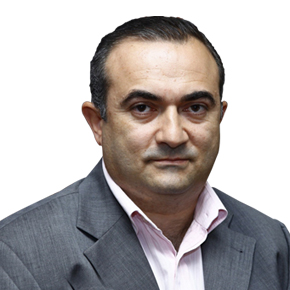It seems that in the Armenian context Track Two Diplomacy (T2D) projects tend to address the Armenian-Turkish relations, and rarely the Nagorno Karabakh issue. However, on October 15-17 a very interesting event was organized in Washington, DC with the aim to discuss the possibilities that T2D projects can open up for the settlement of the Nagorno Karabakh issue.
I have participated only in part of the program, and have followed the rest of the event on media. The first day it was open for a wider audience. The organizers had invited speakers from Armenia and the Armenian Diaspora, Azerbaijan and the international community. Unfortunately, no one was invited from the Republic of Nagorno Karabakh (NKR). Almost all the speakers from Armenia emphasized this deliberate negligence, and it seems that the message was quite clear to the organizers: without an NKR representative any discussion of the NK issue would become merely a nice intellectual exercise and would totally lack any practical implications. Obviously, we were able to communicate it to the organizers successfully, as an NKR representative was invited to the next event at Carnegie Endowment for International Peace. I think we have to be thankful to the organizers for their efforts, and responsiveness to our feedback.
Organizing such meetings of experts to brainstorm on the possibilities of various T2D projects is always very welcome, but after all , what really matters is the follow-up to these discussions. Whether there will be a tangible follow-up and an actual implementation of a T2D project in the conflict region, or whether the event will become yet another one-time show will be clear in a few months.
Meanwhile, perhaps one of the most interesting phenomenon during the whole event was the role of media on the formation of public opinion. I was curious to see how media would influence public perceptions. I should confess that it was quite amusing to read the Azerbaijani media coverage on the event. For instance, my words were twisted to an unrecognizable extent. A number of other presentations shared the same fate as well. Many names were misspelled. Another interesting finding was the fact that many Azerbaijani speakers tried to present their perspectives in quite moderate terms, whereas what you read in Azerbaijani media reminds you of more belligerent rhetoric. Both during and after the event, almost every day I would get an email from one or the other international expert expressing their disbelief on how the Azerbaijani media had distorted their messages. There were even cases of absolute falsification.
I hope that the School of Conflict Analysis and Resolution at George Mason University together with the Imagine project do actually plan for real long term work in T2D, and that the lessons learned from the first event will be taken into account. I also want to believe that all issues discussed and all the good ideas expressed will be implemented with a common effort from Nagorno Karabakh, Armenia, and Azerbaijan.
Tevan Poghosyan is the Executive Director of International Center for Human Development (ICHD). These views are his own.

















Comments
Dear visitors, You can place your opinion on the material using your Facebook account. Please, be polite and follow our simple rules: you are not allowed to make off - topic comments, place advertisements, use abusive and filthy language. The editorial staff reserves the right to moderate and delete comments in case of breach of the rules.